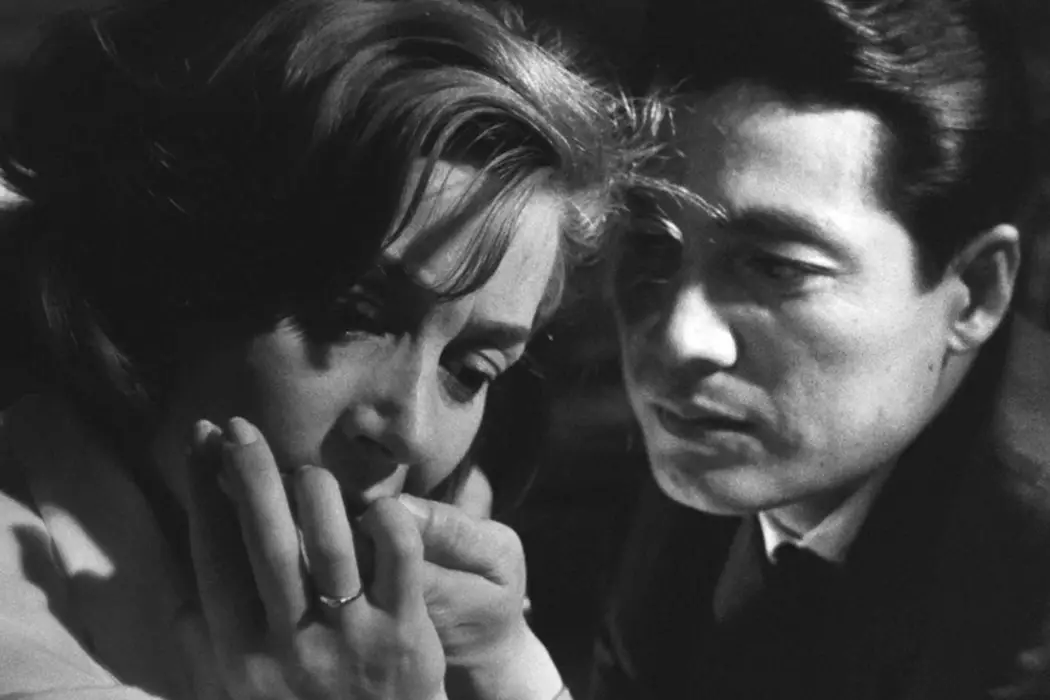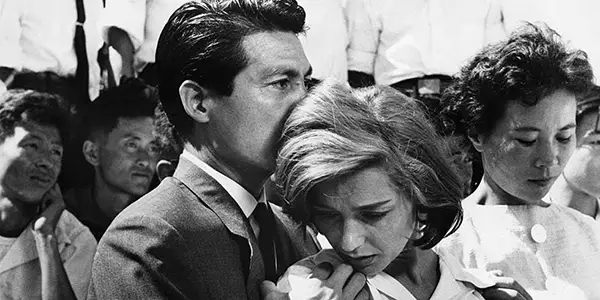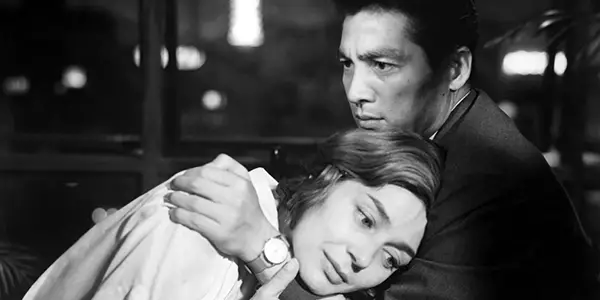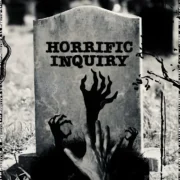HIROSHIMA MON AMOUR: The Most Important Film In The French New Wave

Amanda is a film student from California.
At first thought a lot of people may associate the French New Wave with seemingly elegant female characters looking distraught in a black-and-white backdrop. While that may hold some validity, the importance of the French New Wave, more specifically the importance of the acclaimed film Hiroshima Mon Amour (1959), contains a profoundness that elicits commentary on important subject matters.
New Wave directors like Alain Resnais and Agnès Varda helped to construct a different type of filmmaking that pushed the visual art form’s boundaries. Instead of banking on the assumption that successful pieces of work have to come from big budgeted studios, these new auteurs demonstrated quality filmmaking with their own visions and philosophies.
A New Style of Filmmaking
Spanning from the late 1950s and carrying on into the 60s, films from the French New Wave took advantage of the innovative use of jump cuts. With the unconventional use of editing, the scenes would cut from one shot to the next, disrupting the expected smoothness from a transition in a scene. The lack of immediate continuity that the causal viewer was used to would separate them from their dreamlike-movie-watching state; making the audience conscious of the fact that they are watching a movie.
Rebelliously, the New Wave directors embraced their determination of non-conformity, in all aspects, including their decision to stray away from just making films based off literary pieces. Their desire for representation of current issues lead to a lot of the movies from the French New Wave to touch on important subject matters.
Viewers are able to experience different forms of commentary on important periods throughout history. New Wave films can depict a very specific time in the character’s life as not always being upfront with a definitive social issue, but will have an underlying point to make. It can range from a New Wave film like Jules and Jim (1962) that show life before and after World War I through an atypical romance, to a movie like Cleo from 5 to 7 (1962) that illustrates a haughty singer’s journey to understanding the world better.
The Devastating Importance of Hiroshima Mon Amour
No other French New Wave film tackles the important aftermath of a devastating historical event quite like Hiroshima Mon Amour. An intense budding romance brews between a French woman, Elle, and a Japanese man, Lui, and is self aware of the devastation that was the bombing of Hiroshima.
On August 6th and 9th of 1945, the Allied Powers dropped atomic bombs on Hiroshima and Nagasaki Japan; marking “the end” of World War II. The atomic bombings killed approximately 146,000 people in Hiroshima, and 80,000 people in Nagasaki. Although marking the end of a brutal war, the losses on both sides are hard to ignore.
Hiroshima Mon Amour not only tackles the beauty and desire in a new relationship, but also the underlying sadness of being bystanders on opposite sides of a war where the opposers are both deemed inherently evil.

The film starts off with Elle (Emmanuelle Riva) and Lui (Eiji Okada), embraced after a night of their first encounter turned romance. Their glittering bodies desperately and tenderly hold each other with desire and ignorance that their moments together must eventually end.
Elle’s distant voice recounts how she remembers Hiroshima. As she’s remembering, the camera is transported to all of the places that come to her mind. We visit a hospital, the patients curious and dead-eyed stare back at us. That turns into a museum of people milling around looking at, the now artifacts, of what is left. Horrific images of children and civilians destroyed by war – flames blazing in the background – bleed into shots of animals hobbling over rubble of what once was their lives.
You Saw Nothing In Hiroshima
“You saw nothing in Hiroshima. Nothing.” is what Lui repeats over and over again as Elle verbalizes her memories. While the bombings of Hiroshima meant the end of the war for Elle, a French woman, the attack meant the start of suffering for Hiroshima.
They try to prolong their time together after meeting just one night ago, both of them knowing that Elle has to leave in a few hours to go back to France. Their stubbornness to leave each other leads them to come across a parade remembering Hiroshima. Lui tries to guide Elle out, but she stops him multiple times, tears almost forcing their way out, to watch the school children walking in the parade.
It is not until they reach Lui’s house that it becomes known he is married, and his wife will come back from the mountains in a few days. With a now apparent limit on the time they have left, each encounter slowly ticking down to the last – they feel emboldened to share secret parts of their life.

Elle guides us back to her home, a small French village. It takes place during World War II, where Germany has control over areas in France. This is where she meets a German soldier who she falls in love with. Their tryst-filled love for each other is cut short when the German soldiers are ordered out of France, and her forbidden lover is shot dead.
18 years old and shunned by her entire village, Elle’s parents locked her in their basement. She was there over a decade before she was able to begin her journey to Paris, and eventually Hiroshima.
The pain of their past, and the impending countdown on the time where they would leave each other, caused for them to not know how to spend their last moments. They end their time where they met, at a restaurant. Sitting apart from each other, but where their gazes can be met. A look of sadness yet understanding of one another. An acknowledgment of what they both have gone through.
Conclusion
While there was never a direct conversation about the bombings (other than where they were at the time), Hiroshima Mon Amour captures the aftermath in subtle knowing looks, and harsh jump cuts from hands of a lover to hands of a dead man. The beauty and devastation of their past come together in the purest form that cinema could offer.
The director, Alain Resnais’ excellence brought forth one of the most important films to come out of the French New Wave. A film dealing with the aftermath of a war, but primarily focusing on two people’s romantic encounter is not only impressive, but also inspiring to the other French New Wave directors to come afterwards.
What are your thoughts on Hiroshima Mon Amour?
Hiroshima Mon Amour is available through the Criterion Collection and can be purchased on iTunes.
https://www.dailymotion.com/video/x2xec85
Does content like this matter to you?
Become a Member and support film journalism. Unlock access to all of Film Inquiry`s great articles. Join a community of like-minded readers who are passionate about cinema - get access to our private members Network, give back to independent filmmakers, and more.













